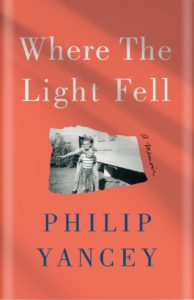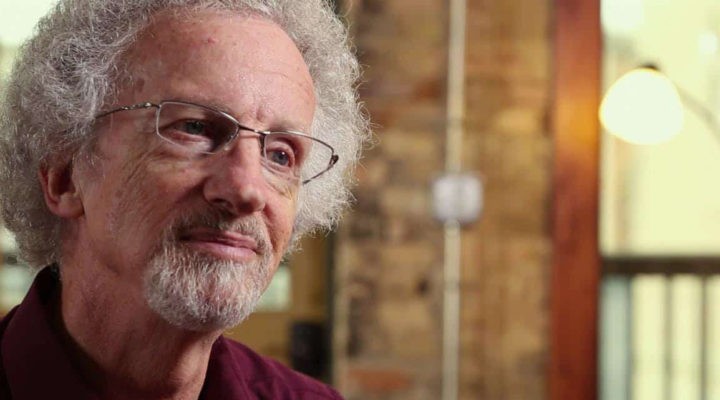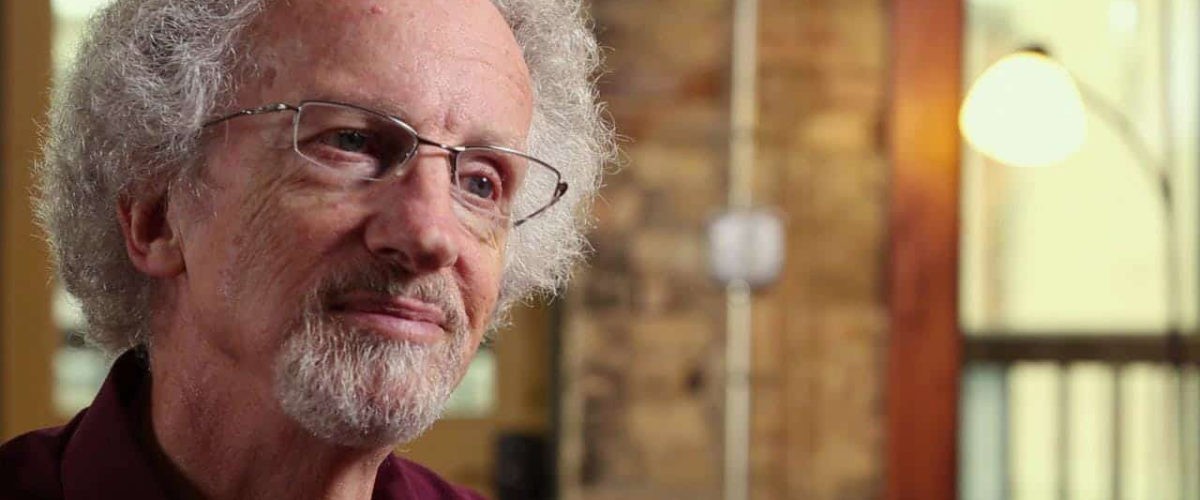If there was a look to being a New York Times best-selling author for the last several decades, Philip Yancey wouldn’t be it. Which is why even he is surprised at what his life has become looking back.
Yancey, whose assortment of Christian books have collectively sold more than 15 million copies, sat down for an interview to discuss his life and why he decided to pen a biography now.
“I’ve been planning it for years and years, and the reason is that I realized at one point I was given a great gift and the gift is not the gift of writing,” he said. “That’s all hard work. That’s not a gift. The gift was that I survived being in the most extreme forms of evangelicalism and fundamentalism. I was saturated.”
 He spent his high school years “in a little trailer living on a church property,” he explained. “I could never get away from it. My mother taught at summer camps. I heard the same thing six weeks in a row. I went to every Bible club, every revival, every vacation Bible school, and I was just immersed in the culture.
He spent his high school years “in a little trailer living on a church property,” he explained. “I could never get away from it. My mother taught at summer camps. I heard the same thing six weeks in a row. I went to every Bible club, every revival, every vacation Bible school, and I was just immersed in the culture.
“I had a very dysfunctional family environment, and religion was at the core of that. And in addition, it was the 1960s, this crazy chaotic time when everything was up for grabs in America. The Civil Rights Movement was on the front page every day. My church was on the wrong side of every issue — poverty, civil rights. I wanted to tell my story.”
It’s that authenticity in Yancey’s voice that has attracted his audience to follow his work for years, whether his early work as a journalist or his books, such as What’s So Amazing About Grace? or The Jesus I Never Knew.
Through the dysfunction of his own family, he later found grace, he said. And that is what he hopes to spread to his reader. Grace has been the hallmark and theme of Yancey’s work for the last several decades and shines through in the memoir as well.
“I tried to give an example of grace because I’ve worked really hard with my mom and brother,” he explained. After 51 years of no contact with each other, his mother and brother now have spoken on the phone twice. “It was the first time that either one has heard the other’s voice.”
His mother lives in the Atlanta area, and his brother lives in California. “It was a tense conversation, but there has been progress and I’m wondering if I had waited until my mother died, then there would’ve been no chance for any change. I’ve seen even in the last few months some progress that I haven’t seen in 51 years.
“My mother doesn’t really read my books and doesn’t approve of me in a lot of ways. She thinks I’m too liberal.”
“My mother doesn’t really read my books and doesn’t approve of me in a lot of ways,” he continued. “She thinks I’m too liberal, but more and more she respects how I’ve kept up loving her and loving my brother at the same time. That’s paying some dividends just in the last couple of months.”
Throughout the memoir, Yancey walks the reader not only through his life, but also through historical moments growing up in the Deep South in a time of massive culture change. He writes about watching his childhood pastor and church members turn away worshipers just because of their race —an issue Yancey seems to want not only to talk about but also challenge the church on.
“The church I went to was Colonial Hills Baptist in the Atlanta area and then later a much more conservative independent Baptist church,” he said. Where in the 1960s activists started trying to integrate Atlanta churches, his church “passed a rule regarding the activists and even gave them a card recommending they attend somewhere else along with posting deacons at every entrance. They wouldn’t at times even let people of color in the door.”
The card church leaders handed out said “We know you’re not a sincere worshiper and that you’re troublemaker. You’re not a child of God. You’re not welcome here,” Yancey summarized.
“Then they softened a bit and they allowed some students from Carver Bible college to attend. The school is now called Carver College. One of those students liked the church so much based on their Bible teaching that he wanted to join. So they had this big deacons meeting and they refused to let him join. His name was Tony Evans.”
Evans, of course, today is a prominent pastor based in Dallas.
“The church would later come back and apologize and even brought myself, Tony and the President of Carver Bible back for a repentance ceremony,” Yancey said. “The church, however, ended up moving and dwindling down.”
Yancey believes God has called him to the work he does as a writer.
Through experiences such as these, Yancey believes God has called him to the work he does as a writer.
After being reluctant to write specifically about his own life and upbringing, a tragic experience a few years ago changed his perspective.
“My car slid off this cliff, turned over five times,” he said. “I ended up with a broken neck. Once they found me, I ended up lying there for seven hours strapped to a backboard. Couldn’t move. I trusted God in knowing if this is the last day, I’m ready to go. I’ve had a good life. I’m ready to meet God. I believe in a God of grace and mercy and forgiveness.
“And then I started thinking, OK, if I do die, what’s the one regret I have — with one of them being at the time not writing my biography.”
His faithful readers will be grateful not only that he didn’t die in that car wreck but that he did write down his life story.
This biography isn’t the end for Yancey when it comes to writing. There is more on the way.
“It’s been a great journey,” he said. “I spent 20 years in a real toxic faith environment and under law, legalism and racism and all that. But I’ve spent 50 years exploring grace, and that’s pretty good and a pretty good ratio. I’m wondering had the 20 years not happened, would the 50 years of writing on grace not have followed.”
Related articles:
Author of Eugene Peterson biography was one of many shaped by America’s pastor


